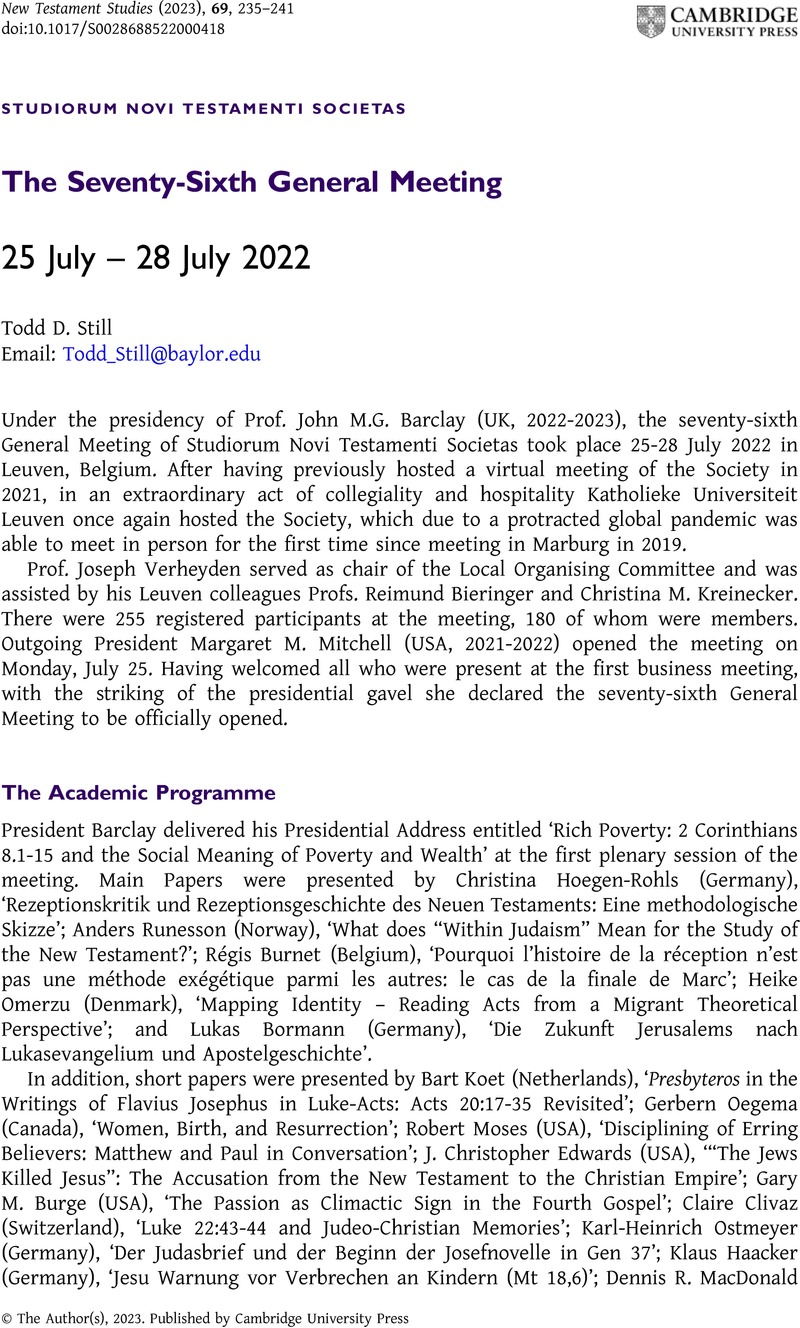No CrossRef data available.
Article contents
The Seventy-Sixth General Meeting
25 July – 28 July 2022
Published online by Cambridge University Press: 08 March 2023
Abstract
An abstract is not available for this content so a preview has been provided. Please use the Get access link above for information on how to access this content.

- Type
- Studiorum Novi Testamenti Societas
- Information
- Copyright
- Copyright © The Author(s), 2023. Published by Cambridge University Press



